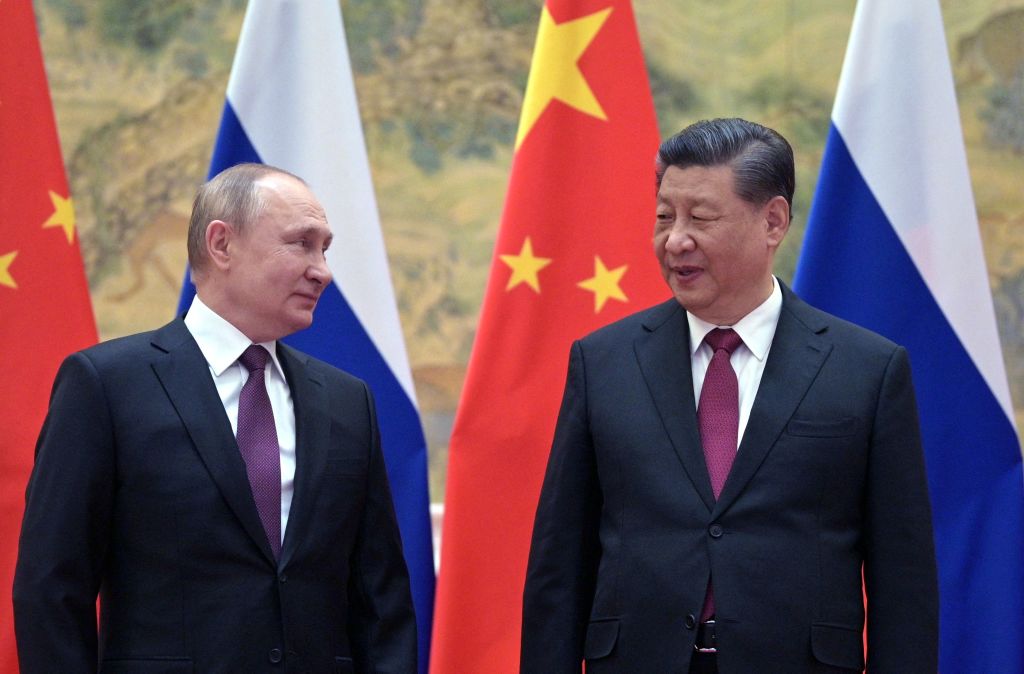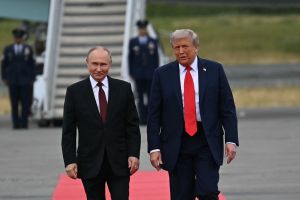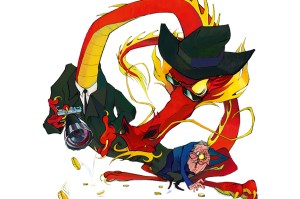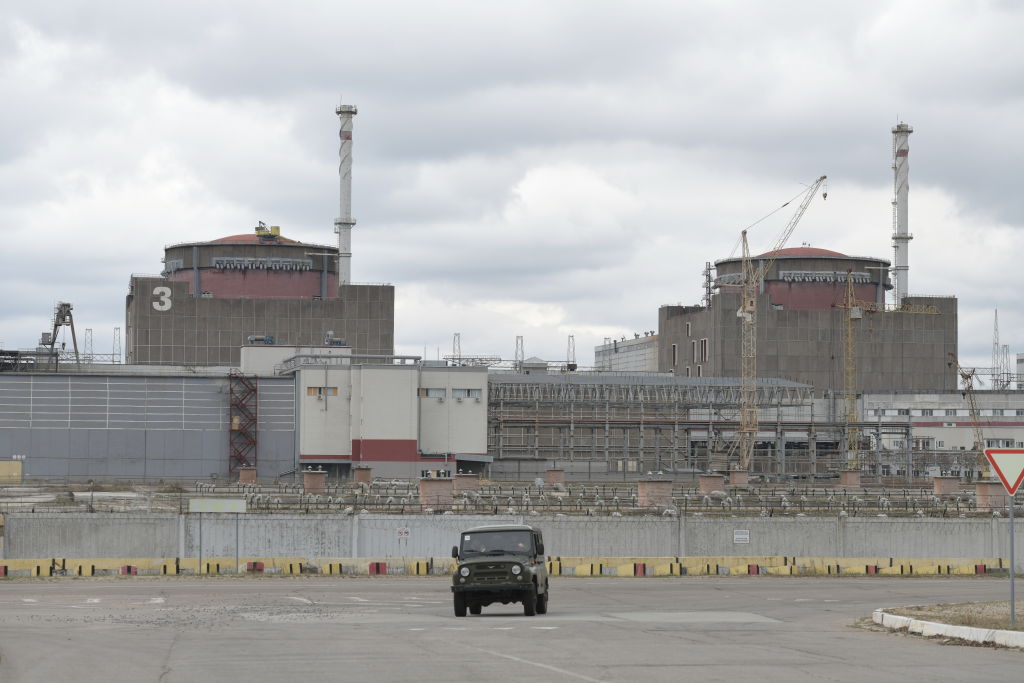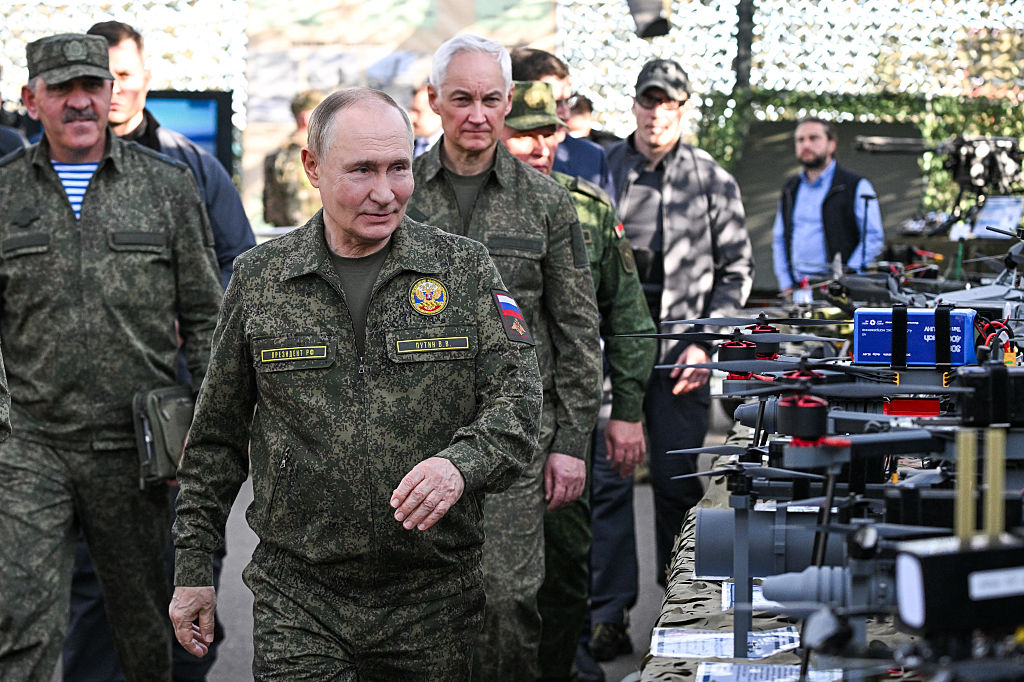I have a medal for winning the Cold War. And I’m not alone — they were awarded to all members of the military and federal civilian employees who served during the Cold War. That included me, at the tail end, with the State Department. Ironically, my so-called Cold War service was in Taiwan. I probably should return the thing; the Cold War is far from over.
Part of the Cold War’s real conclusion is playing out in Ukraine in real time. Is Taiwan, another hanging chad from that era, next? Is President Xi watching a weakened America giving in to the Russians and seeing his chance to seize Taiwan?
Nope. Taiwan is not Ukraine is not Taiwan. The two places only exist next to each other in articles like this one because both are the results of American policy. Both countries exist alongside their nemeses because the rules the US created (the “liberal world order,” as it’s called, so long as America is in first place) are not subscribed to anymore by most of the world, if they ever really were. But that does not mean Taiwan is in imminent danger.
While Putin‘s invasion timing may or may not have had to do with Joe Biden (if Trump really were his puppet, why didn’t Putin send in the tanks then?) the reality is that what’s unfolding in Ukraine reaches back much further than Biden or Trump, to the collapse of the Soviet Union.
It was then the policy of the United States to empower the former Soviet satellite states and grow American influence by expanding NATO eastward (Lithuania, Latvia, Estonia, Poland, and Romania formally joined the alliance; East Germany as well by default) and to do this while taking away the nuclear weapons from those states so that none of them would become a threat or rival in Europe.
We took their people, too. As a young State Department officer in London in the early 1990s, I was told to issue visa after visa to former nuclear scientists from the Ukraine, as well as all sorts of rogues headed to the United States to get them out of the ‘Stans. We created a brain drain to ensure none of the newly independent states could rise above the nuclear threshold that the United States established unilaterally for them. It was American policy to have weak but not too weak states between Russia and the “good” part of Europe, dependent on America for defense.
Understanding why an adversary does something is not the same as supporting him. As the Soviet Union collapsed, borders were redrawn with more attention to the West’s needs than any natural flow of those borders (the same mistake was made earlier by the British post-World War I in the Middle East). The reality of 2022 is Putin is seeking to redraw borders, something now doable because Russia has been allowed to regrow its fangs. Ukraine as a possible NATO member is a threat to Putin and he is now taking care of that. Americans live in a country that has no border threats and fail to understand the mindset time after time. We believe instead when we invade countries (Vietnam, Cambodia, Grenada, Iraq, Libya, Afghanistan) it’s all part of international law.
Geopolitically, it was easy. A pro-Russian faction exists inside Ukraine, and Ukraine exists outside the NATO umbrella. Putin’s 2014 proof-of-concept in Crimea assured him NATO would not intervene. About the only real obstacle was the likely pleas of President Xi to hold off and not spoil the Olympics.
Taiwan is another Cold War relic. While the US propped up its very undemocratic military government for decades as an ironic bulkhead against communism, the island grew into an economic powerhouse. In that lies the fundamental difference between the relationships of Russia and Ukraine, and China and Taiwan.
China and Taiwan are economic partners. Between 1991 and March 2020, Taiwan’s investment in China totaled $188.5 billion, more than China’s investment in the United States. In 2019, the value of cross-strait trade was $149.2 billion. China is Taiwan’s largest trading partner. China and Taiwan are ethnically the same people, enjoying an enormous bounty of cross-strait commerce, culture, student exchanges, and other ties signifying a growing relationship, not an adversarial one. What incentive would China have to drop bombs on one of its best customers?
Any cross-strait violence would affect US-China relations, while Ukraine has little effect on the already poor state of US-Russia relations. Chinese investment in the American economy is over $145 billion, while American investment in China has passed $1 trillion. China is the second largest foreign holder of US government debt. If something interfered with all that commerce, China would have to find a way to use unfinished iPhones as food.
One of the problems with the sanctions Biden is claiming he’s going to use to punish Russia is how unintegrated Russia is into the world economy after so many years of sanctions. What’s left that will sting? Biden promises “economic consequences like none [Putin]’s ever seen.” But the Panama Papers show that much of the so-called oligarch money, including Putin’s, is not in America’s or its allies’ banking systems anyway. The oft-discussed SWIFT international banking system is run as a neutral entity out of Belgium, and Russia cannot be blocked from it by any US “sanction.”
Germany is temporarily halting certification of the Nord Stream 2 pipeline, but no one is talking about tearing it down. And if US sanctions drive up gas prices without affecting the situation on the ground in Ukraine, who is sanctioning whom?
China, on the other hand, would be deeply vulnerable to sanctions and disruptions of commerce following an attack on Taiwan. The risk in calculable dollars is beyond any gain owning Taiwan would bring; imagine the impact of closing US ports to Chinese cargo vessels.
On the military side, Russia was able to literally drive into Ukraine, something the mighty Red Army has been perfecting since 1945. Taiwan famously is an island, and a Chinese amphibious invasion would scale beyond the Normandy landings. Taiwan fields Harpoon missiles with the range to put Chinese forces under fire almost as they leave port. Tactically there is no comparison between the flat plains of Ukraine and the rocky coast of Taiwan. Nobody undertakes an invasion they are likely to lose.
An invasion of Taiwan would leave China isolated and economically crippled. Not so for Russia and Ukraine where the benefits to Russia clearly outweigh the risk. Taiwan is not Ukraine is not Taiwan. American policymakers should remember that.



